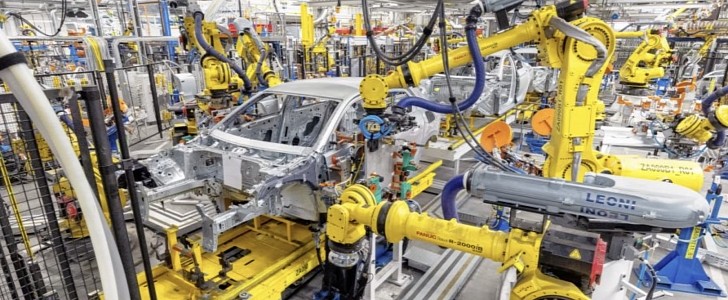The chip crunch has become a major pain in the neck for the majority of carmakers out there, and while most of them expected the whole struggle to come to an end this year, they are all revising their forecasts on this front.
Stellantis is the latest big name in the automotive industry that has come up with the obvious prediction: the chip shortage wouldn’t end this year, so fingers crossed for the semiconductor inventory to improve in 2023.
Speaking at an event last week, Stellantis Chief Executive Carlos Tavares explained that the current chip inventory is very similar to what the industry faced back in 2021. Tavares claimed 2022 barely produced any improvements, but on the other hand, there are high hopes 2023 would come with some sort of recovery in this regard.
Certainly, guessing when the chip shortage could come to an end isn’t much different from spinning the wheel of luck.
The current market is so volatile that the production capacity can change overnight, especially because the world is currently struggling not only with the health issue (which, by the way, is yet to come to an end) but also with the geopolitical tensions in Europe.
The health crisis itself is causing additional challenges as a result of the new lockdowns and restrictions happening in China, as the local producers of parts and materials are therefore massively impacted.
On the other hand, the war in Ukraine generates new shortages, including critical materials that are used for the production of other components. One such example is neon, the gas that’s being used by the lasers employed for the production of chips, as Ukraine is one of the largest producers in the world.
After the Russian military invasion, Ukraine has stopped the production of neon, and while other factories, including those in Taiwan, can produce the necessary output, it’s pretty clear the supply chain continues to be under heavy pressure.
Speaking at an event last week, Stellantis Chief Executive Carlos Tavares explained that the current chip inventory is very similar to what the industry faced back in 2021. Tavares claimed 2022 barely produced any improvements, but on the other hand, there are high hopes 2023 would come with some sort of recovery in this regard.
Certainly, guessing when the chip shortage could come to an end isn’t much different from spinning the wheel of luck.
The current market is so volatile that the production capacity can change overnight, especially because the world is currently struggling not only with the health issue (which, by the way, is yet to come to an end) but also with the geopolitical tensions in Europe.
The health crisis itself is causing additional challenges as a result of the new lockdowns and restrictions happening in China, as the local producers of parts and materials are therefore massively impacted.
On the other hand, the war in Ukraine generates new shortages, including critical materials that are used for the production of other components. One such example is neon, the gas that’s being used by the lasers employed for the production of chips, as Ukraine is one of the largest producers in the world.
After the Russian military invasion, Ukraine has stopped the production of neon, and while other factories, including those in Taiwan, can produce the necessary output, it’s pretty clear the supply chain continues to be under heavy pressure.






